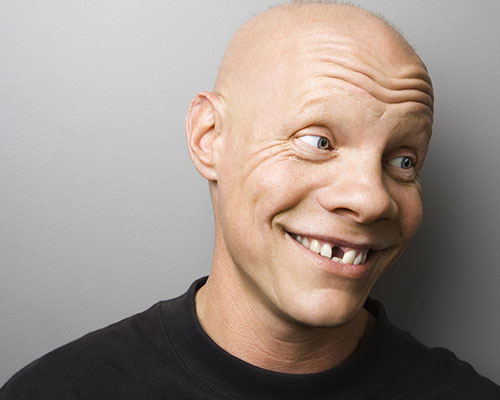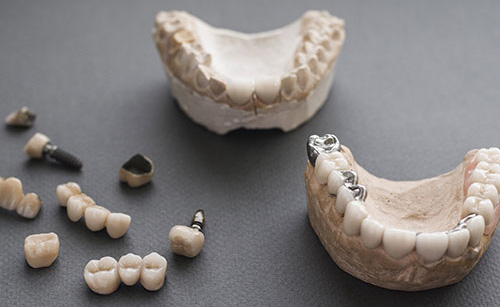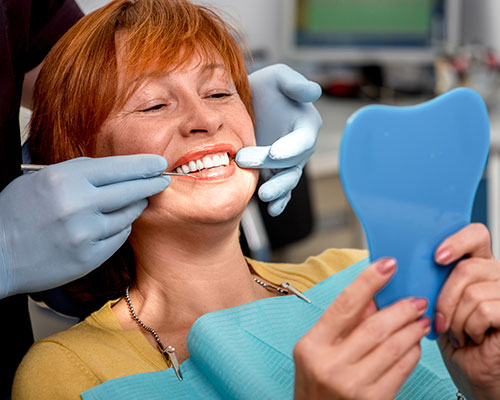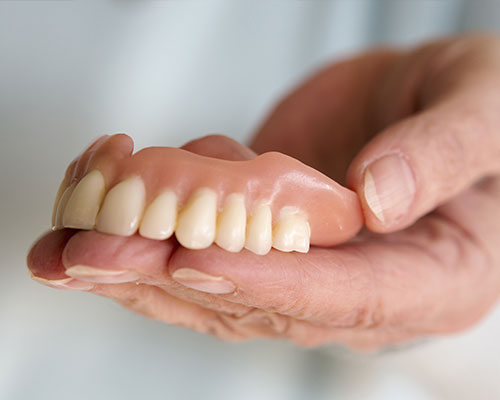When teeth are badly decayed, weak or broken through injury, a crown may be required to restore lost tooth tissue, or to protect what remains. Custom-made in a dental lab, a crown is bonded over the top of the existing tooth, bringing it back to full function. Crowns are often the next course of action when filling is no longer effective, or after root-canal treatment, which leaves teeth weakened and brittle.
Dentists have been using crowns to strengthen or rebuild teeth for a long time – but it’s only in recent years that crowns have become as renowned for their look as for their function. While traditional crowns were made of metal or gold, today’s advanced materials allow for completely lifelike, tooth-coloured and metal-free restorations, made to match your exact requirements for shape, shade, texture and translucency.






